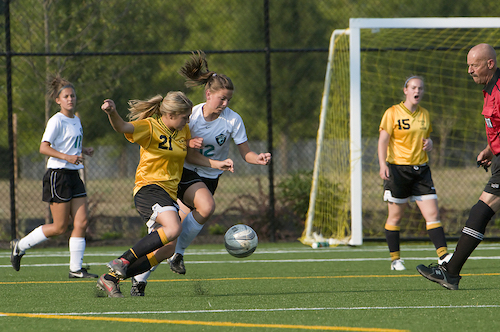 Children who participate in extra-curricular activities are happier than their peers who spend their time playing video games or on social media.
Children who participate in extra-curricular activities are happier than their peers who spend their time playing video games or on social media.
Whether it be music lessons, clubs, catch ups with friends or sports practice, children who did out of school activities had greater wellbeing.
“Participating in organised sports, reading, homework and opportunities to socialise with friends was more commonly associated with children’s having a higher sense of wellbeing; whereas the more time spent engaging in screens can be detrimental to their sense wellbeing. The study also highlights that for children in at risk groups, those who have access to organised sports have better wellbeing outcomes,” Dr. Rosa Virgara, lead author of the study and a researcher at the University of South Australia told Theravive.
In undertaking the study, the researchers examined data from nearly 62 thousand students from grade four to nine.
They assessed how many days on average each week children participated in an activity between 3pm and 6pm.
They also measured factors like sadness, happiness, worry, perseverance, engagement, optimism, emotional regulation and overall life satisfaction.
They found that the majority of students watched TV four days during the school week and on three days of the school week they were on social media.
“The most common activities that all children in the study did after school were watch television, spend time on social media, and participate in household chores.
Secondly, we found that children who were more disadvantaged spent more time socialising with friends, watching TV, using social media than students from more advantaged backgrounds – who tended to do more organised sport, homework, reading and playing music. We also found that children from more advantaged backgrounds were more likely to score higher on items such as happiness, optimism and life satisfaction,” Virgara said.
“Finally, a finding that is really interesting is that for those children within the disadvantaged backgrounds, if they participated in more organised sport, homework and chores they had better wellbeing outcomes, that is they were more optimistic, happier, high life satisfaction and better able to regulate their emotions than their peers.”
Those from a lower socio-economic background who played sport frequently were 15 percent more likely to be optimistic. They were also 14 percent more likely to report being satisfied with their life and happy.
They were also 10 percent more likely to regulate their emotions if they played sport regularly.
But children who played video games or used social media were found to nearly always have lower levels of wellbeing overall. They were up to 8 percent less likely to be optimistic, up to 9 percent less likely to report being happy and were also 11 percent more likely to give up on things.
Virgara argues that helping children cultivate a good sense of personal wellbeing is crucial in today’s times of uncertainty.
Primary school children in particular need a strong sense of wellbeing as they navigate the challenges of fulltime schooling, while teenagers need a sense of wellbeing as they go through the emotional, physical and social changes of adolescence.
The researchers say their findings suggest some out of school activities, like reading, sport and socialising with friends can be beneficial to the wellbeing of children.
But other activities that involve screens can have a detrimental impact on the mental and physical health of children and teens.
But she says this doesn’t mean parents and caregivers need to ban their children and teens from screen entirely.
“Taking the approach of “snacking on screens” is a great way to manage it. Children like to use their screen based activities, it provides an opportunity to socialise and do something they enjoy; however prolonged screen use that is sedentary in nature and doesn’t engage their minds can be harmful, the data proves that,” she said.
“So I would encourage parents to try to set some limits around screen use in the same way you would with discretionary foods. Encourage children to be active either before or after using screens, or offer alternative activities such as listening to music, mindful colouring, boardgames or puzzles if they are after some quiet activities.”
Elizabeth Pratt is a medical journalist and producer. Her work has appeared on Healthline, The Huffington Post, Fox News, The Australian Broadcasting Corporation, The Sydney Morning Herald, News.com.au, Escape, The Cusp and Skyscanner. You can read more of her articles here. Or learn more about Elizabeth and contact her via her LinkedIn and Twitter profiles.